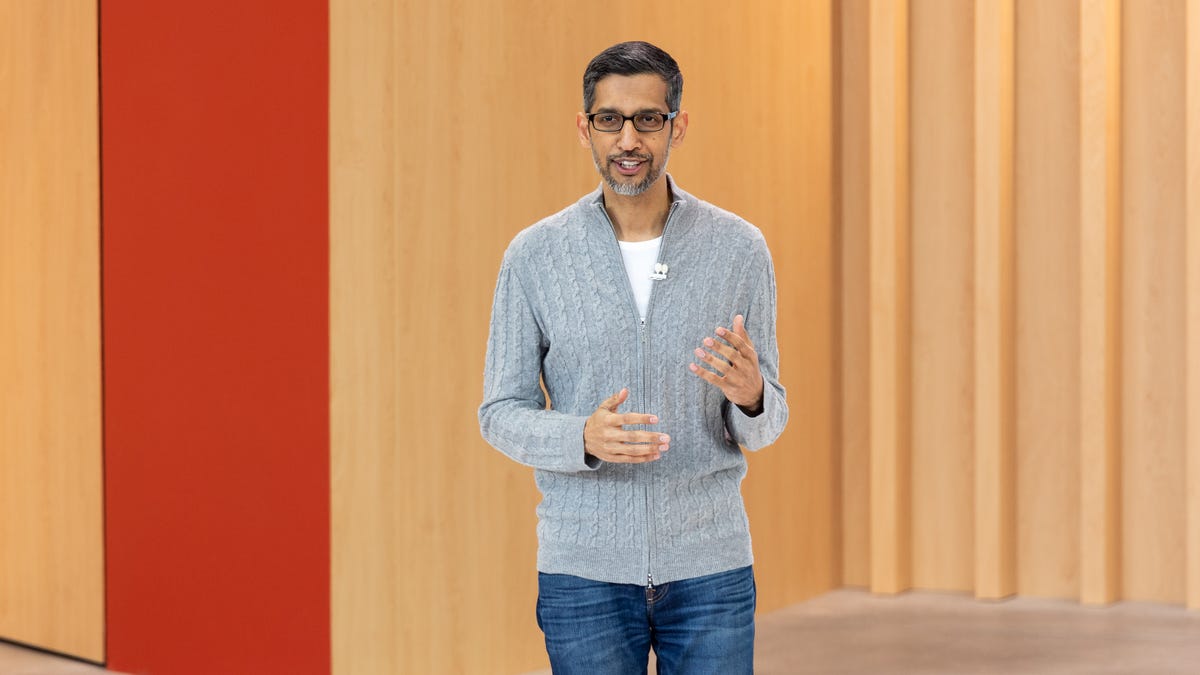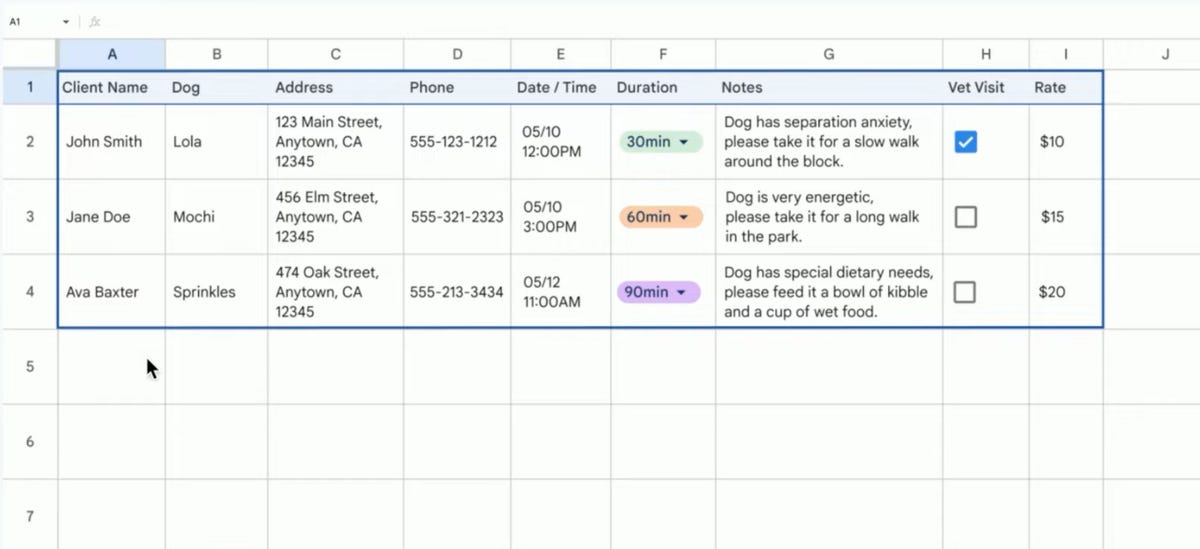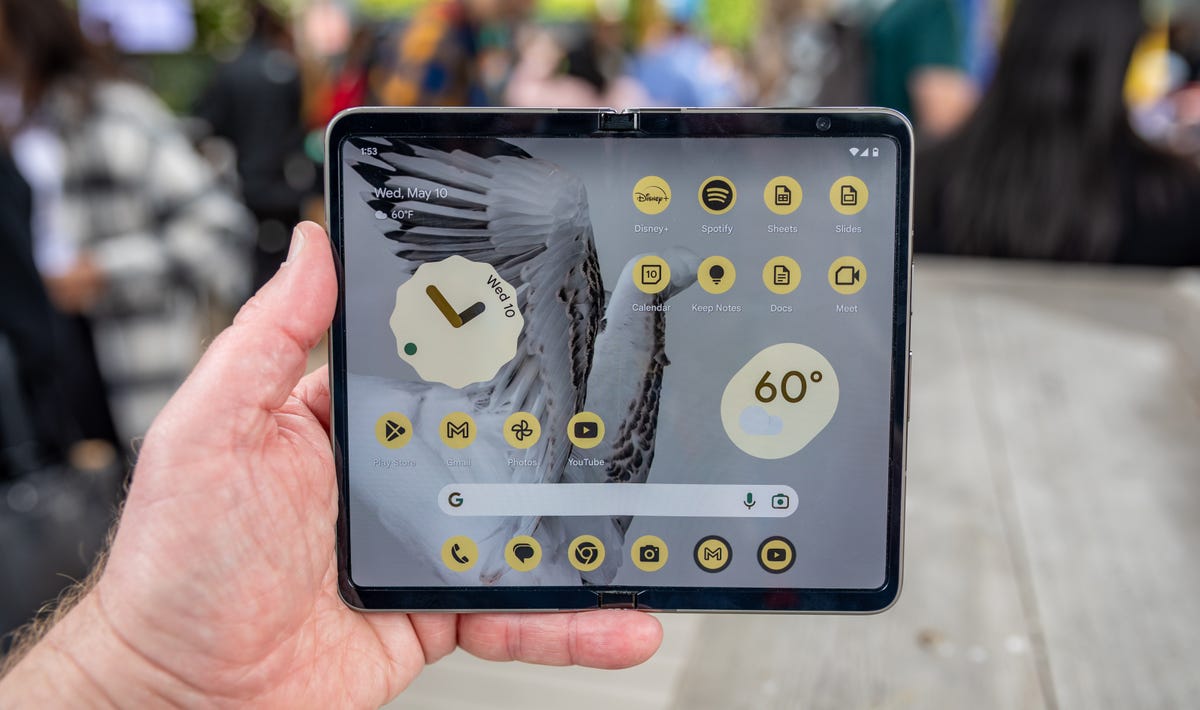With AI and New Gadgets, Google Gets Some Mojo Back at Google I/O
Google CEO Sundar Pichai touted his company's artificial intelligence efforts at Google I/O 2023.
It's been rough for months, but with compelling new AI tools and gadgets at Google I/O, the company showed it's got its mojo back.
The search giant has been on the defense despite being able to take a lot of credit for developing the technology powering artificial intelligence. It was OpenAI's ChatGPT and its Bing chatbot cousin from business partner Microsoft that revealed that AI has become useful and creative enough to threaten white-collar jobs.
The low point came with a leaked memo purportedly from an employee who concluded that Google can't win the AI arms race and fretted that Google AI has no moat — a Silicon Valley term for an advantage like patents or experience that protect a business from its competitors.
But lo and behold, it turns out Google really wasn't just sitting around watching AI startups poach its researchers.
Instead, we saw at Google I/O that the company's product teams have been sinking their teeth into AI. Executives mentioned AI 143 times during the two-hour I/O keynote because they had example after example of how Google is using AI in dozens of products like search, Gmail, Google Photos, Google Docs and Google Cloud.
AI, despite near-term and long-term worries, offers real utility. With a marriage of computer scientists, data centers and products, Google is showing it can deliver that utility to many corners of our lives.
At the same time, Google's Pixel line of hardware products is showing new promise. Here's a look at what's up.
Google is working on generative AI abilities like letting Google Sheets construct a spreadsheet from the command, "client and pet roster for a dog walking business with rates."
Google's big AI news
Among the big AI announcements at Google I/O:
The concern that Google has no AI moat -- in other words, that other companies can reproduce its AI power -- is based on the idea that all Google has to offer is raw AI processing capability. In fact, it's building AI into a wide range of existing tools, and that's where the value arrives to convince customers to pay.
Google's new hardware
Google gets a lot of grief for canceling projects like Google Reader for reading RSS subscriptions, Google Inbox for handling email and Google Stadia for video game streaming.
But it's stuck to its Pixel phone line for seven years and doesn't look likely to bow out anytime soon.
Remember phablets? Google's Pixel Fold has a 7.6-inch interior when unfolded.
At Google I/O, it offered a trio of compelling new Pixel products: the $499 Pixel 7A, a budget smartphone; the $1,799 Pixel Fold, a folding smartphone with screens both on its interior and exterior; and the Pixel Tablet, a tablet that docks onto a smart speaker charging station for convenient use in the kitchens.
None of the products seem likely to sell in the volumes of mainstream consumer hits like Samsung Galaxy phones, Amazon Echoes or Apple AirPods. The company just doesn't have the gadget cachet, retail strength, carrier relationships or other ingredients needed to hit the big leagues.
But all of them show Google can design and build smart products with real utility and differentiation. The Pixel 7A, with a better camera, wireless charging and waterproofing its predecessor lacked is "best value for Pixel fans right now," my colleague Lisa Eadicicco concludes. The Pixel Fold outpaces the Galaxy Z Fold 4 in some respects, for example a bigger outer screen for use when folded. The Pixel Tablet's smart speaker usefulness sets it apart from the otherwise lackluster Android tablet market.
Google's hardware chief, Rick Osterloh, boasted at Google I/O, "In the premium smartphone category, Google is the fastest growing [manufacturer] in our markets." That's a lot of qualifiers, and fast growth is easier for small players than for incumbent powers. But growth is good in a market tough enough to scare away former powerhouses like LG.
When it comes to phones, Google is an underdog. When it comes to AI, Google had to learn from OpenAI and Microsoft that its own success isn't guaranteed. At Google I/O, we saw the benefits of Google shaking off its complacency.



